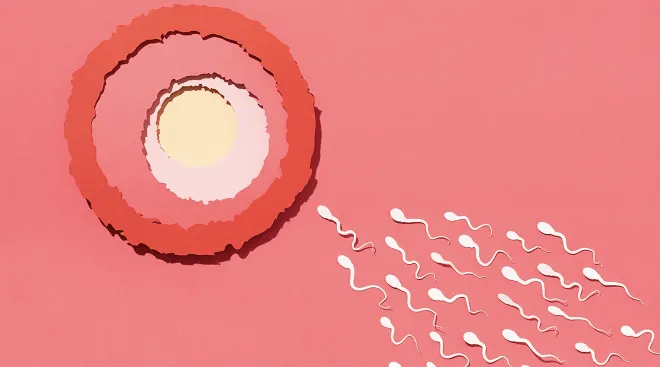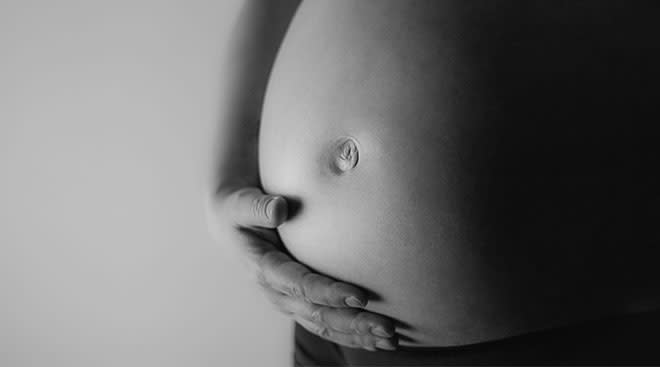Q&A: When to Start Worrying About Fertility Issues?
It’s pretty common to start obsessing after just a month or two of trying to conceive without success. You’ve spent so many years terrified of getting pregnant — of course you’d assume it would happen within seconds of throwing out that last pill package. (Right?) And as you come to find out that’s not quite the case, it’s only natural to start jumping to conclusions. But, although it is actually harder to get knocked up than those high school sex ed classes would have you believe, you probably don’t have much to worry about.
Most docs say you shouldn’t worry until after an entire year of trying to conceive with no success. But, if it’s been nine months or so and you’re worried something’s wrong, don’t hesitate to ask your OB to refer you to a reproductive endocrinologist (R.E.)for some tests. If there’s a physiological reason you’re not conceiving you can start exploring your options, and if the tests come back normal you can relax and keep at it. The one exception: If you’re over 35, you might want to visit a specialist after just six months of TTC. Fertility starts to decline at this point, and by discovering any problems early you can avoid wasting time.
Warning signs and red flags
Wondering if the reason things are taking so long have to do more with you or your partner? It’s super common for women to blame themselves for fertility issues, but the truth is, about 35 to 40% of cases with infertility issues can be traced back to the man, another 35 to 40% can be traced to the woman, and the rest fall into a grey area mostly due to a combo of factors. The only way to know for sure is to meet with a Reproductive Endocronologist and both get tested. Still, there are some warning signs that could point you in the right direction, even before you see the doc.
Common causes of male infertility
If the problem lies with your guy, the most common culprit will be a sperm disorder — such as low sperm count, slow sperm motility, or a deficiency in forward progression (the sperm’s quality of movement). And any of these problems could be caused by a variety of factors. Here are some biggies to keep in mind, though:
-
Age (His sperm count may not decrease, but it starts to lose motility around 40.)
-
Immune problems (This can also impact motility and the sperm’s ability to implant itself in your egg.)
- Weight issues (If your guy is underweight or overweight, it may be taking a toll on his sperm function.)
-
STDs (Untreated STDs could impact sperm transportation, but this can be improved dramatically if he seeks treatment.)
Common causes of female infertility
In your case, there are (unfortunately) many more factors than can cause some bumps in the road on the way to having baby. Here are a few major ones that may be what’s behind your fertility issues:
-
Age (Even though this may not directly stand in your way of having a baby later in life, your egg count starts to significantly decline around 30 and may become a factor.)
Uterine Fibroids (About 80 percent of women in the U.S. have fibroid growths on their uterus, though in many cases they will not effect fertility at all. When they become problematic, however, you may need a surgery called a myomectomy.) -
Pelvic Inflammatory Disease (PID) (PID is an infection which causes about 20 percent of its carriers to be infertile, but this can often be solved with treatment.)
-
Scar Tissue/Adhesions (Scar tissue bands of fibrous material can cause blockages in the fallopian tubes, leading to fertility problems. This can be rectified with surgery, and in less-serious cases, abdominal massage.)
-
Ovarian Cysts (These fluid-filled sacs can sometimes grow on the ovaries and prevent eggs from developing or being released. They can sometimes go away on their own, but when they don’t, laproscopic surgery may be necessary.)
-
Polycystic Ovarian Syndrome (PCOS) (About 1 in 10 women have PCOS, and it’s the most common cause of infertility. Signs of PCOS include irregular periods, excess facial hair, acne, and obesity. But many of it’s fertility-blocking symptoms can be eased with regular exercise, weight loss, and medication.)
-
Irregular Periods (Irregular periods — and therefore irregular ovulation — account for about 30 percent of infertility cases. Some patients may see their periods return to normal with a diet and exercise regime, while others may need to turn to meds like Clomid to help out.)
If you’ve been struggling with fertility for some time, and either you or your partner have one or more of the above symptoms, speak with your OB about scheduling an appointment with an R.E. as soon as possible, to see if something more may be at play.
Please note: The Bump and the materials and information it contains are not intended to, and do not constitute, medical or other health advice or diagnosis and should not be used as such. You should always consult with a qualified physician or health professional about your specific circumstances.
Navigate forward to interact with the calendar and select a date. Press the question mark key to get the keyboard shortcuts for changing dates.




















































